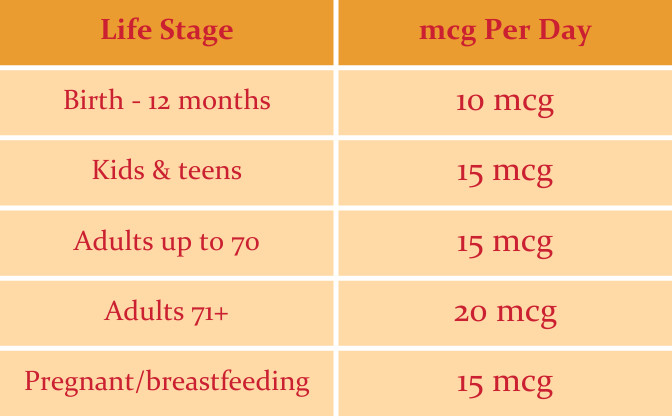
January Only: $149/month pelvic floor therapy membership with unlimited chair + red light massage bed. Learn More!
Vitamin D is a nutrient you need for good, overall health. It helps your body absorb calcium, an important building block for strong bones. Your muscles also need vitamin D to move, and nerves need it to send messages from your brain to the rest of your body.
While vitamin D is naturally gained through sunshine, most of us do not get enough vitamin D from the sun alone to be beneficial, especially in the Northwest. Many factors impact how we absorb the benefits of sunshine including sunscreen, pollution, time of day, time spent in the sun, and skin color.
The amount of vitamin D you need each day depends on your age. Average daily recommended amounts are listed below in micrograms (mcg).

Over time, vitamin D deficiency can cause osteomalacia, a disorder that causes bone pain and muscle weakness.
For more information on Vitamin D:
National Institute of Health (NIH), Vitamin D for consumers
Medline Plus, Vitamin D
Posted January 05, 2024

The content provided on this website is for informational purposes only. It is not a substitute for professional diagnosis, treatment, or medical advice. There is no assurance or warranty regarding the accuracy or applicability of the content. Never ignore professional medical advice or delay seeking it because of something you have read on this website. If you believe you may have a medical emergency, immediately call your doctor or emergency services. Compounded GLP-1 medications may not be FDA-approved.